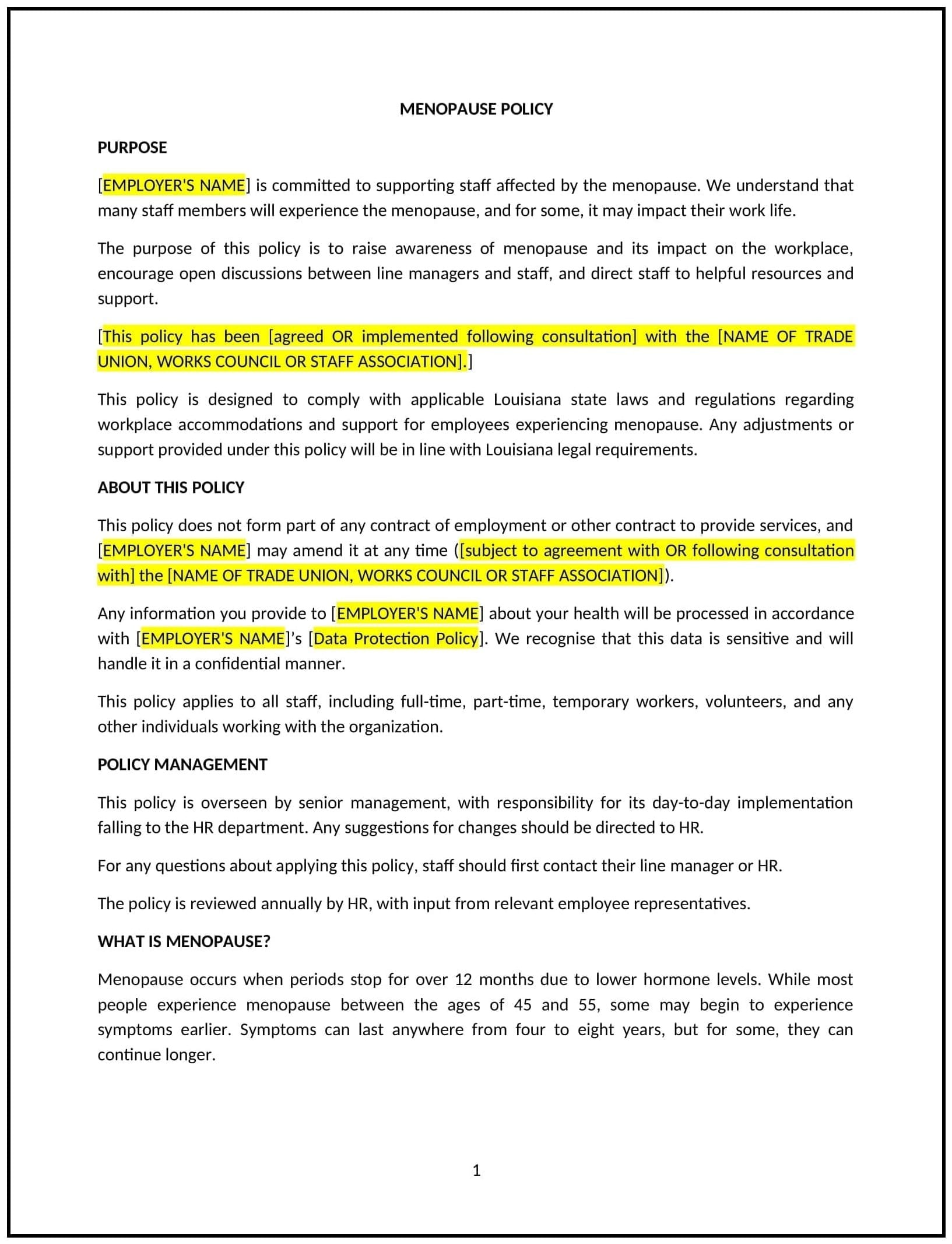Got contracts to review? While you're here for policies, let Cobrief make contract review effortless—start your free review now.

Customize this template for free
Menopause policy (Louisiana)
This menopause policy is designed to help Louisiana businesses support employees experiencing menopause by fostering an inclusive and understanding workplace. It outlines guidelines for raising awareness, providing accommodations, and addressing menopause-related needs to ensure employee well-being and productivity.
By implementing this policy, businesses can reduce stigma, promote employee health, and enhance workplace morale.
How to use this menopause policy (Louisiana)
- Define scope: Specify how the policy applies to all employees affected by menopause, including those indirectly impacted, such as managers or coworkers.
- Raise awareness: Include initiatives to educate employees and management about menopause, its symptoms, and workplace impacts.
- Outline accommodations: Provide examples of workplace adjustments, such as flexible schedules, access to rest areas, or temperature control modifications.
- Encourage open communication: Establish channels for employees to discuss their needs confidentially with HR or management.
- Include training requirements: Require managers to complete training on supporting employees experiencing menopause.
- Detail review processes: Specify how the effectiveness of accommodations and overall workplace support will be periodically assessed.
Benefits of using a menopause policy (Louisiana)
Implementing this policy provides several advantages for Louisiana businesses:
- Enhances employee well-being: Supports employees in managing menopause-related symptoms at work.
- Reduces stigma: Encourages open discussions and understanding of menopause in the workplace.
- Improves retention: Demonstrates a commitment to supporting employees through all life stages.
- Promotes productivity: Minimizes disruptions by addressing specific workplace challenges related to menopause.
- Reflects Louisiana-specific needs: Adapts to regional workplace dynamics and cultural considerations.
Tips for using this menopause policy (Louisiana)
- Provide educational resources: Share materials to help employees and managers understand menopause and its impact.
- Foster inclusivity: Create a workplace culture where employees feel comfortable discussing menopause-related needs.
- Monitor workplace conditions: Assess factors like temperature control, seating, and access to rest areas to ensure they support employee comfort.
- Review accommodations: Regularly evaluate the effectiveness of provided adjustments and seek employee feedback.
- Update regularly: Revise the policy to reflect new insights or changing workplace practices.